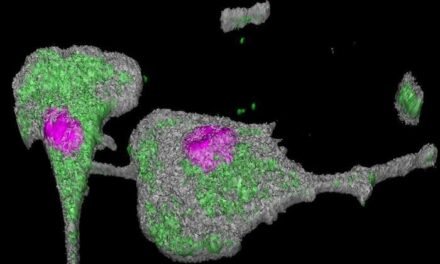Respiratory syncytial virus (RSV) was able to spread across the placenta from the respiratory tract of the mother to the fetus in animal models, according to study results in the peer-reviewed, open-access journal PLOS ONE. Researchers were also able to detect the virus postnatally in the lungs throughout development and into adulthood.
For the study, investigators inoculated rats with RSV during midterm pregnancy. The virus was identified in 30% of the fetuses carried by infected rodents; it was also found in the lungs of 40% of newborns and 25% of those reaching adulthood.
“This study challenges the current paradigm that RSV infection is acquired only after birth and shifts attention to prenatal effects of the virus, which may result in more severe and lasting consequences by interfering with an unborn baby’s critical developmental processes,” said Giovanni Piedimonte, MD, the study’s lead author and chairman of Cleveland Clinic Children’s Hospital and the Pediatric Institute.









